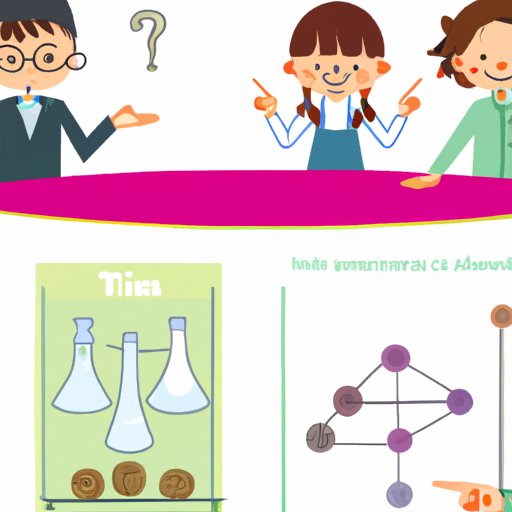Introduction
Science is a broad field that encompasses the study of the physical world, including its structure, processes, and phenomena. It helps us understand the natural environment around us and how everything works together. Explaining science to children can be challenging due to the complexity of the subject, but it is important for them to learn about the world around them in order to develop critical thinking skills and gain a better understanding of their environment.
Use Visuals
Visuals are an effective way to explain science to children. Illustrations, diagrams, pictures, and videos can help them comprehend complex concepts more easily. For example, a diagram of the solar system can help children understand the relative sizes and distances of the planets, while a video can demonstrate the movement of the planets in real time.
Keep It Simple
When explaining science to children, it is important to avoid jargon and technical terms that they may not understand. Instead, use clear language that is easy for them to comprehend. Break down complex topics into smaller, simpler parts, and provide examples to illustrate the point being made.
Connect Concepts to Everyday Life
One of the best ways to explain science to children is to connect it to their everyday lives. For instance, you can explain the concept of photosynthesis by showing them how plants absorb sunlight and use it to create energy. You can also talk about the food chain and how different organisms depend on each other for survival.
Ask Questions
Asking questions is a great way to encourage dialogue and gauge understanding. Ask open-ended questions that require more than a yes or no answer. This will help children think critically and apply what they have learned to new situations.
Make It Fun
To make learning science fun, incorporate games, experiments, and activities into your lessons. For example, you can conduct experiments to demonstrate the effects of gravity or create a game where children have to solve puzzles related to scientific concepts. Doing this will help children stay engaged and remember what they have learned.
Conclusion
Explaining science to children can be difficult, but with the right approach, it can be an enjoyable experience. By using visuals, keeping it simple, connecting concepts to everyday life, asking questions, and making it fun, you can help children understand and appreciate the wonders of science. According to research, “Exposure to science during childhood can lead to increased curiosity, creativity, and motivation that could benefit children in all areas of their lives” (National Science Foundation).
(Note: Is this article not meeting your expectations? Do you have knowledge or insights to share? Unlock new opportunities and expand your reach by joining our authors team. Click Registration to join us and share your expertise with our readers.)
